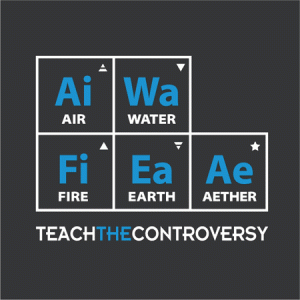Jul 03 2017
Eroding Science Education in Florida
 Florida just passed a bill designed to challenge the teaching of evolution, climate change, and other “controversial” science in the classroom. This represents the evolution of such laws promoted by those opposed to the teaching of evolution.
Florida just passed a bill designed to challenge the teaching of evolution, climate change, and other “controversial” science in the classroom. This represents the evolution of such laws promoted by those opposed to the teaching of evolution.
In the past century there have been a number of such state laws passed in the US, most of which have been struck down by Federal courts, including The Supreme Court, as a violation of the separation of church and state. These including banning the teaching of evolution, requiring the teaching of “creation science”, teaching the controversy, and teaching creationism’s alter-ego, Intelligent Design.
Essentially these are all attempts to force or allow schools to determine what is taught in the public school science classroom not by the current scientific consensus but by the prevailing religious beliefs of the community. The string of legal defeats has not stopped efforts to oppose the teaching of evolution. Rather deniers have simply tried to craft laws to get around the pesky first amendment.
This latest Florida law is one such attempt. The law states that any resident of a county in Florida, whether or not they have a child in school, may challenge educational material used in their school district. I actually don’t have a problem with this part of the law. Let anyone formally express their concerns. I don’t think you have to have a child in the school system to have an legitimate interest in what the state is teaching children in publicly funded schools.
It is the second part of this law that is problematic. The law calls for school districts to appoint an “unbiased hearing officer” to hear the complaints. The Washington Post reports:
If the hearing officer deems the challenge justified, he or she can require schools to remove the material in question.
This may just be my ignorance of legalese and procedure, but the law states that the county must, “conduct at least one open public hearing before an unbiased and qualified hearing officer.” It then concludes:
The school board’s decision after convening a hearing is final and not subject to further petition or review.
It is unclear to me from reading the bill if the hearing officer makes the final decision or the school board. But let’s say that the Post’s interpretation is correct, that would indeed be very bad. It would be putting far too much power in the hands of one appointed person, whose decisions are not subject to further petition or review.
The fear, which is justified by the comments of proponents of the bill, who clearly want to use it to challenge the teaching of evolution in public schools, is that this will constitute an end-run around existing procedure.
I also challenge the notion of an “unbiased” hearing officer. What does this mean in this context? Is there anyone who isn’t “biased” when it comes to the question of evolution vs creationism? What would an unbiased person look like? In this case, there is only one scientific position, that the theory of evolution is a well-established scientific theory and there are no valid competing scientific theories for the development of life on Earth. Any other position is demonstrably wrong. That would be the position of an unbiased and qualified hearing officer.
I suspect, however, that this is not what those who crafted the bill intended. “Unbiased” could mean that they accept creationism as a valid alternative, or are sympathetic to the alleged “weaknesses” in the theory of evolution. Such positions would not make a hearing officer “unbiased”, just unqualified.
The very notion of bias here is problematic. It makes it seem like a scientific conclusion is a matter of opinion. It also can be interpreted as assuming there is a middle ground between science and pseudoscience. This gets back to the fact that there are some topics which are controversial in the public sphere, but not controversial within scientific circles. Evolutionary theory (the basic parts that would be taught in a public school) is backed by a solid scientific consensus. There is no controversy.
The point of this and similar bills is to craft a law that will not be ruled unconstitutional because it does not specifically target any theory or support any religious belief, even though the intent is clear to anyone paying attention. This strategy may, in fact, work. I do wonder if the effects of the law can make it vulnerable to legal challenge. If it is consistently used to promote a clearly religious agenda that might render the law vulnerable to legal challenge. I guess we’ll have to wait and see.
Clearly those who care about the integrity of science education need to remain vigilant and politically active.






